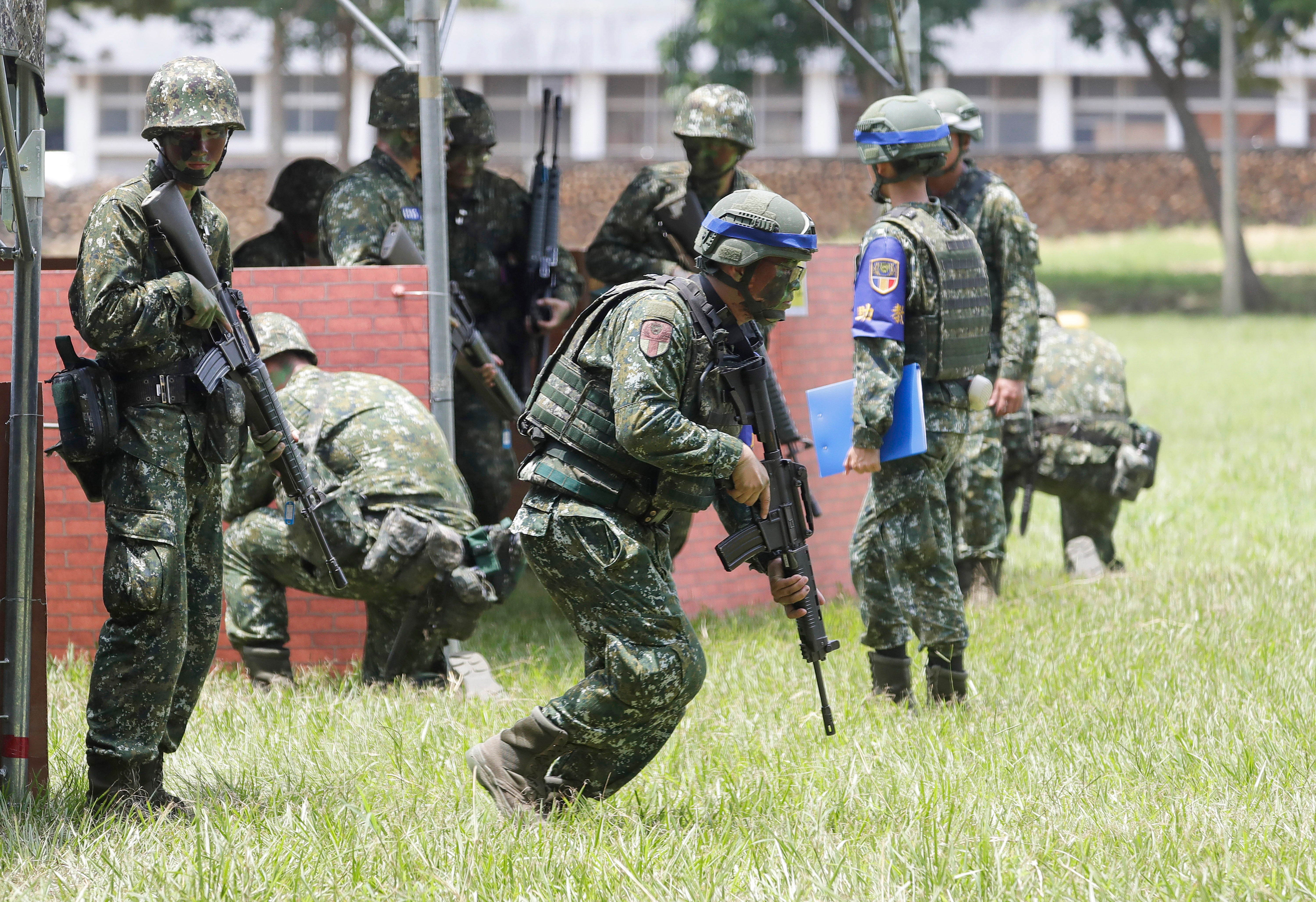Small army can beat a bigger opponent, Taiwan’s president tells air force ahead of military drills
Lai Ching-te says there are ‘countless ways to win over old-fashioned enemies with new thinking’
Your support helps us to tell the story
From reproductive rights to climate change to Big Tech, The Independent is on the ground when the story is developing. Whether it's investigating the financials of Elon Musk's pro-Trump PAC or producing our latest documentary, 'The A Word', which shines a light on the American women fighting for reproductive rights, we know how important it is to parse out the facts from the messaging.
At such a critical moment in US history, we need reporters on the ground. Your donation allows us to keep sending journalists to speak to both sides of the story.
The Independent is trusted by Americans across the entire political spectrum. And unlike many other quality news outlets, we choose not to lock Americans out of our reporting and analysis with paywalls. We believe quality journalism should be available to everyone, paid for by those who can afford it.
Your support makes all the difference.History is witness to many examples of small armies overpowering bigger opponents, Taiwan’s president Lai Ching-te said in a speech rallying his air force ahead of annual war games and amid escalating tensions with mainland China.
Addressing officers at an air base in central Taiwan, Mr Lai said military strength is not a simple mathematical question of addition and subtraction.
“The amount of equipment admittedly is important, but it cannot represent the military power of a country," he said in a video released by his office.
"In history, there are many cases where the few win out over the many, and there are countless ways to win over old-fashioned enemies with new thinking."
China, which regards self-governed Taiwan as part of its territory, routinely conducts exercises around the island. While a full-scale invasion of Taiwan is unlikely, China has not ruled out the use of force to bring the island under its control.

Beijing has over the past four years simulated attacks on the island, from missile bombardment to sea and air blockades.
Such war games not only serve as intimidation but also as an opportunity for Chinese forces to practise locking the island down in the event of an actual attack.
Taiwan also routinely conducts its own military drills.
The island’s military is dwarfed by China’s air, naval and ground forces. But it has been modernising its forces with new equipment like submarines supplied by its allies in the West, especially the US, and championing the idea of "asymmetric warfare". The idea is to make its forces more mobile and hard to attack, with, for example, vehicle-mounted missiles and drones.
Mr Lai's statement came ahead of Taiwan’s annual war games scheduled for later this month despite increased pressure from China following his election to office.
The Xi Jinping government has called him a “dangerous separatist” and a “troublemaker through and through”.
A Taiwanese official said last month this year's Han Kuang military drills will be as close as possible to actual combat, no longer just putting on a show to score points, but aiming to simulate real fighting given the rising "enemy threat" from China.
The five-day exercises start on 22 July, alongside the Wan An civil defence drills where cities are briefly shut down during simulated air raids.
China held two days of war games around the island shortly after Mr Lai took office in May, saying it was "punishment" for his inauguration speech, which Beijing denounced as being full of separatist content.
Mr Lai rejects Beijing's sovereignty claims and says only Taiwan's people can decide their future.
"The peace we want is a peace with a solid foundation, a true peace that must be established by our own strength," he said at the Taichung air base.
Asked by a fighter pilot whether Taiwan was giving people the wrong impression it was preparing for war with its focus on defence self-sufficiency, Mr Lai said he wanted peace.
"Some people may have such misgivings but everyone knows we are a peace-loving country," he said.
"But the peace we want is a 'true peace' that has a solid foundation and is established by our own strength."
Additional reporting by agencies

Join our commenting forum
Join thought-provoking conversations, follow other Independent readers and see their replies
Comments